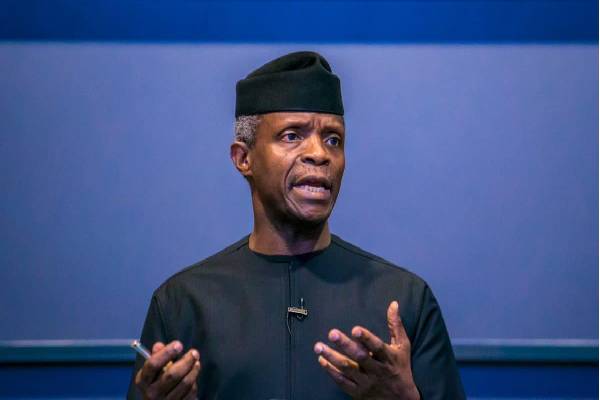
Vice President Yemi Osinbajo said the presidential order restricting movements in the FCT, Lagos and Ogun States is backed by Nigerian laws.
Osinbajo made this submission in Abuja while responding to questions at the Google Hangout programme.
The programme, which took place on Monday was organised by HACK COVID-19 Call Centre – a private sector initiative, supporting Nigeria’s battle against the pandemic.
Nobel Literature laureate Professor Wole Soyinka and human rights lawyers such as Femi Falana have questioned the legal basis of the lockdown.
Osinbajo, a law professor responded: “It is entirely legal; these steps are proactive, very relevant; important and backed by law.
“I am not so sure some of the people who have commented on the issue have come across the Quarantine Act.
“There is a Quarantine Act of 1926; it has been published in all of the Laws of Nigeria, every edition of the Laws of Nigeria, it is there.”
“The Act allows the president to designate any local area, any part of the country, as a place that may be infected or under the threat of a communicable disease, and he can then make regulations of any kind.
“For instance, he can say, people should not go out; no public gatherings among others; so, it is a regulation that gives the president powers and these powers come from the National Assembly because, of course, it is an act of the National Assembly,” Osinbajo said.
Osinbajo said the 1926 Act is deemed to be an Act of the National Assembly and gives the president as well as governors extensive powers.
He urged critics to go through the legislation to understand the provisions.
“It is barely one-page legislation, so it is not particularly difficult to find the relevant provisions.
“It is not particularly difficult to read, very straightforward; so, the president has all the powers.
“Many of us are not familiar with the Influenza pandemic that killed several millions around the world in 1918.
“At that time, regulations were made here, very similar to what we have today, although that was under the colonial authorities.
“They also banned public gatherings, banned gatherings in places of worship then.
“So, there is even good historical precedence for some of what we are doing today,” he said.